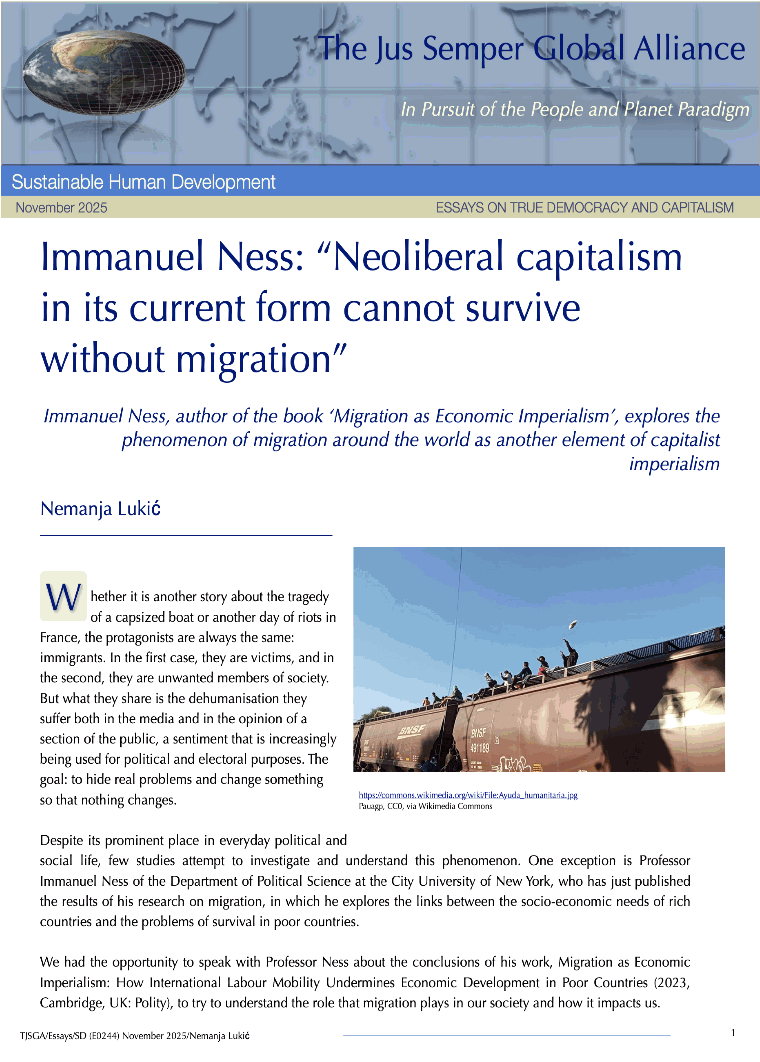Immanuel Ness, author of the book ‘Migration as Economic Imperialism’, explores the phenomenon of migration around the world as another element of capitalist imperialism Nemanja Lukić Whether it is another story about the tragedy of a capsized boat or another day of riots in France, the protagonists are always the same: immigrants. In the first case, they are victims, and in the second, they are unwanted members of society. But what they share is the dehumanisation they suffer both in the media and in the opinion of a section of the public, a sentiment that is increasingly being used for political and electoral purposes. The goal: to hide real problems and change something so that nothing changes. Despite its prominent place in everyday political and social life, few studies attempt to investigate and understand this phenomenon. One exception is Professor Immanuel Ness of the Department of Political Science at the City University of New York, who has just published the results of his research on migration, in which he explores the links between the socio-economic needs of rich countries and the problems of survival in poor countries. We had the opportunity to speak with Professor Ness about the conclusions of his work, Migration as Economic Imperialism: How International Labour Mobility Undermines Economic Development in Poor Countries (2023, Cambridge, UK: Polity), to try to understand the role that migration plays in our society and how it impacts us.
For a full read of this essay, click here or on the picture to download the pdf file.
|

- © The Jus Semper Global Alliance
| Home |  | Resources |  | Economic Data |  | Immanuel Ness: “Neoliberal capitalism in its current form cannot survive without migration” |


